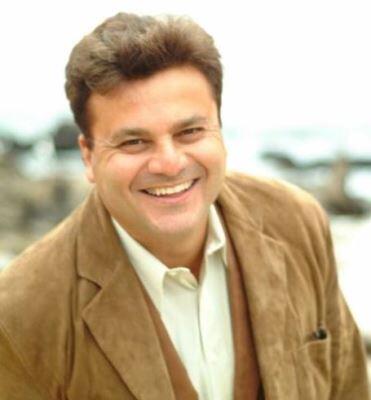First Chapter, Section 1
Searching for nobility and virtuosity (finding virtue and nobility with inner truth and passion) —--> Concentration + Focusing ——> Imagination (Visualization) + Insights + Learning + Intuition ———--> Goal Setting + Hard Work + Determination + Teamwork + Creativity ——-> Strong feelings of accomplishments and originality
What is finding Virtue? Finding Virtue is an interesting concept or mental condition when you find what you do sublime, hallowed, extremely joyous, divine, interesting, inspiring, fun, kind of holy, rewarding, gratifying, and most important noble and virtuous. This might have happened in school when you were lucky to have an inspiring teacher. This might happen when you observe inspiring scientists, musicians, artists, dancers or singers show their true passion for what they do. They are inwardly inspired and gravitated (intrinsic motivation) toward the subject of their interest.
Let us come back to our mind map to see how you might achieve the same. Sometimes you focus before you find virtue in the task. Sometimes you visualize before you focus. There is really no order to this mind map.
Concentration + Focusing——> Finding Virtue —--> Imagination (Visualization) + Insights + Learning + Intuition ————--> Goal Setting + Hard Work + Determination + Teamwork + Creativity ——-> Strong feelings of accomplishments and originality
Sometimes you Imagine, learn and then focus and then you find virtue. This is like learning math. No one finds virtue in algebra not knowing algebra. Once you learn algebra and hence you find the power of math and finally you will find the virtue behind it. The theory suggests that each help the other along a circle to create a vortex. The more you learn, the more you find insights, and the more you find insights, the more you focus. The more you focus, the more virtuous the task. Each push the other in a circle that creates a vortex.
Imagination (Visualization) + Insights + Learning + Intuition ——> Concentration + Focusing——> finding Virtue ———--> Goal Setting + Hard Work + Determination + Teamwork + Creativity ———> Strong feelings of accomplishments and originality
Concentration, strong form of focusing, and imagination might be the aftermath of intrinsic motivations and finding virtue. The Aha moment is when you reach your goal with creativity and ingenuity.
A very important trait innate to most creative people is eccentricity. Eccentricity is a natural gift or innate force that helps to defeat fear of failure and risk taking. Eccentricity gets rid of shame of failure. It might be the answer to our vulnerable side.
David Weeks the author of an excellent book called ECCENTRICS:
Given the frequent association of eccentricity with genius, the ability to conceive startlingly original artistic and scientific breakthroughs, it seemed to be an obviously worthwhile subject for psychological research. For the annals of eccentricity include such names as William Blake, Alexander Graham Bell, Emily Dickinson, Charlie Chaplin, and Ludwig Wittgenstein, not to mention Albert Einstein and Howard Hughes. If we could gain even the barest glimpse into how all those people came to be the way they were, it might just help the rest of us to be more creative, more original: better at being ourselves.…..++++…Eccentrics, Emperor Norton, and his court pose a challenge to the assumption that underlies all modern psychology, that we know more than we used to about the mind, and therefore that we are doing things better now. In fact a strong case could be made that even though nineteenth-century Californians knew nothing about brain-cell synapses or neuro-transmitters, delusional grandiose mania or borderline syndromes, in humanitarian terms they got it much more right than we do now.….
Eccentricity means uniqueness, finding the freedom to be utterly one’s own person (Autonomous). What’s the opposite, you might ask? The opposite is Alienation. It means that an individual gives up his Self (denying what he knows to be so in favor of what someone else says is so) in order to achieve success and avoid failure.
This alienation results for we do things only as a matter of reaction or just being on auto pilot. What would be the opposite of reaction or auto pilot? This book is all about opposite of reaction or auto pilot; the term is called Mindfulness.
As E. E. Cummings put it, “To be nobody but yourself in a world which is doing its best to make you everybody else, means to fight the hardest human battle ever and to never stop fighting.”
Even if outwardly we do not appear different, inwardly there is the fearless ability to be wholly the embodiment of yourself.
The painter Georges Braque once exhorted those around him, “It’s up to us to be real strong eccentrics, and not to waver.” One Zen master called this the culmination of Zen training, its fruition: “To be faithful to yourself and to life.”
Here is an interesting old fable.
It seems that bigots were eager to rid their town of a stranger who had opened a tailor shop on Main Street, so they sent a group of rowdies to harass the tailor. Each day, the ruffians would show up to jeer. The situation was grim, but the tailor was ingenious (eccentric?).
One day when the hoodlums arrived, he gave each of them a dime for their efforts. Delighted, they shouted their insults and moved on. The next day they returned to shout, expecting their dime. But the tailor said he could afford only a nickel and proceeded to hand a nickel to each of them. Well, they were a bit disappointed, but a nickel is after all a nickel, so they took it, did their jeering, and left. The next day, they returned once again, and the tailor said he had only a penny for them and held out his hand. Indignant, the young toughs sneered and proclaimed that they would certainly not spend their valuable time jeering at him for a measly penny. So they didn’t. And all was well for the eccentric or ingenious tailor.
